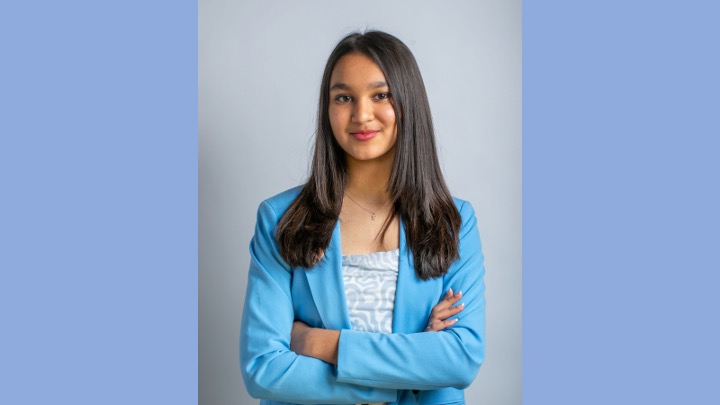Samaira Mehta, 14, is starting her freshman year at Archbishop Mitty this month. At this time, this young Santa Clara resident is also busy preparing to visit Minneapolis’s 3M Innovation Center in mid-October to compete in the 2022 3M Young Scientist Challenge.
Mehta is one of the finalists vying to win $25,000 in the competition sponsored by 3M and Discovery Education. Hundreds of students from all over the country submitted entry videos proposing a solution to a problem in the areas of health, safety, mobility, environment, energy consumption and community. Of this group, ten finalists were selected.
Mehta’s two-minute video summarized her project related to health.
“The name of the project is OVISION – it is an artificial intelligence project that can classify and diagnose ovarian cancer subtypes,” Mehta said. “I read a magazine article that said the male body is the body that doctors use when they are looking to develop solutions to diseases. Hence, cancers like ovarian cancer that only affect women get overlooked. Statistics back this up too. Across the world, over 300,000 women are diagnosed with ovarian cancer every year. Out of this number, 200,000 women die. These are shocking statistics, to have a fatality rate of 66% for a disease.”
With a background in coding and artificial intelligence (AI), Mehta would like to bridge the gap between the attention given to diseases that affect women and that of men in the current healthcare treatment system. In doing so, she hopes to reduce the fatality rate of ovarian cancer.
“A protein called mesothelin (MSLN) is overexpressed, or appearing too much in the body, in about 70% of ovarian cancers,” Mehta said. “The AI tool I have developed diagnoses mesothelin. If a doctor knows a patient has an MSLN overexpression, they can apply targeted therapies, such as CAR T-cell therapy, to eliminate the overexpression. Essentially, this will reduce the cancer from growing. I’ve used artificial intelligence to detect the subtype of the cancer and to detect MSLN overexpression.”
Mehta looks forward to the 3M Young Scientist Challenge later this fall.
“What the 10 finalists have to do during this summer is design a new and updated version of their solution, using certain 3M devices,” she said. “These devices can be something as simple as adhesive tape or thermal conductive tape to things like bandages and Post-Its and dish scrubbers. 3M creates many products and people can think of innovative ways to use their products. We have to present our final solution at a podium in front of judges.”
Mehta’s final product at the October challenge will be an enhanced version of her original artificial intelligence project. For the time being, she is keeping the details of her updated work a secret.
“In addition, when the finalists and I are in Minnesota, we also have to work in teams to create a solution to two new problems that will be presented to us,” she said.
